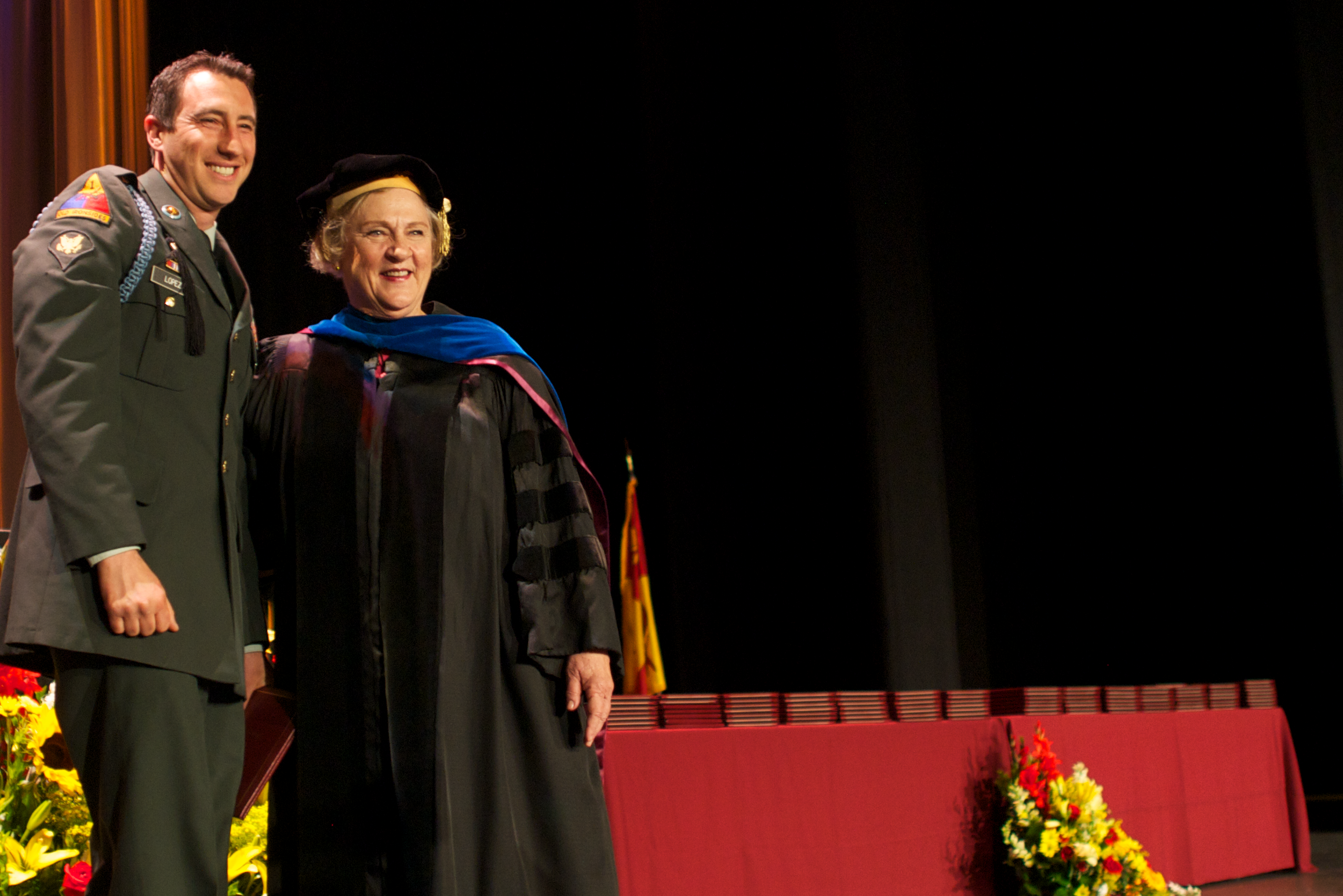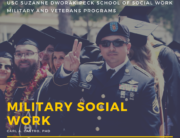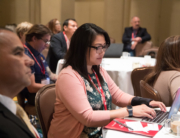by Claudia Bustamante
When the May and Stanley Smith Charitable Trust was deciding its most recent funding focus, it considered areas and organizations that would have the most impact.
Recognizing the far-reaching effects and value of trained military social workers, the trust awarded a $500,000 25th Anniversary Grant to the USC School of Social Work for scholarship support for veterans and military families.
To commemorate a quarter century of giving, the trust recently awarded five 25th Anniversary Grants totaling $3.7 million, one in each of its program areas: elders, foster youth, people with disabilities, veterans and military families, and discretionary grants.
Ruth Collins, a trustee and administrator, explained that these grants were also intended “to highlight new interests of the trust identified in its 2014-2018 strategic plan, and to recognize and support effective organizations, efforts and programs that strongly align with the goals in each program area.”
Social workers often diagnose and treat combat stress disorders and other life challenges that arise during a transition from military to civilian life. There is a critical shortage of those qualified to meet the needs of the growing number of service members and veterans returning home from the nation’s longest wars.
Because many veterans are averse to seeking help, when they finally do, it is imperative to provide culturally competent professionals. Those with military experience – either veterans or military family members – lend credibility and increase the likelihood that veterans will seek and continue mental health treatment.
Kim Finney, a clinical associate professor at the USC School of Social Work and chair of the school’s military social work program, said that not only can this first-hand experience help facilitate sessions at the onset of treatment, but it can also have wide-ranging benefits.
“It’s a gift to society and the community to have social workers working with service members, veterans and military families in the field, who can harness both the theory and the wealth of knowledge that comes from personal military experience,” said Finney, a retired Air Force officer.
“A scholarship that recognizes these unique backgrounds and skillsets contributes greatly to the larger societal goals of improving the lives of veterans and military families, especially as they transition to civilian life.”
USC was the first research university to offer a graduate-level military social work program that has attracted many veterans and military families, especially through the online MSW@USC that provides flexibility to pursue the degree for those not in Southern California. The program has created a multiplier effect whereby graduates enter meaningful careers and are better equipped to help those veterans coming behind them transition from war to the community.
Bill Lockwood, trust program officer for veterans and military families, said successful transition and community integration are key to preventing chronic and more severe challenges later on.
“Many veterans and military family members need support to navigate through the transition and integration process. A trained and knowledgeable guide such as a social worker who understands the process can make a significant difference to reduce stress during and after the transition,” he said.
A recent study by the school’s Center for Innovation and Research on Veterans & Military Families (CIR), which surveyed more than 1,350 veterans in Los Angeles County, found that more than two-thirds of all pre- and post-9/11 surveyed veterans experienced difficulties adjusting to civilian life, and most did not know where to go for help. The study issued multiple recommendations for engaging communities and reaching out to veterans, some of which are currently underway.
CIR pursues research that can be translated into practice in community and clinical settings. It aims to improve military-focused training and education beginning at the graduate-level by informing the school’s military social work curriculum. CIR is responsible for the military culture course that School of Social Work students take.
CIR received a grant from the trust last year to promote military cultural competency, enabling the center to produce short video vignettes to train graduate students on military culture.
“The trust’s commitment to increasing the number of social workers who understand military and veteran culture goes beyond our students,” said Anthony Hassan, clinical professor and director of CIR. “This support will help ensure that all students who are interested in working with military populations, regardless of where they’re located, can have access to this critical training.”








